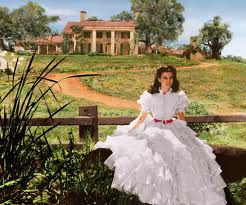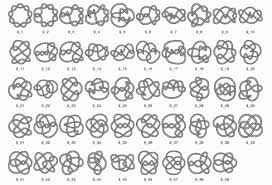 It was a beautiful early afternoon, and I was standing in the checkout line in the Wal Mart across the street from church, patiently waiting my turn to buy my stuff while I pondered my plans for the half-day ahead of me and rejoiced at the thought that it was finally warm enough that I would be able to open my dorm room window. Then it happened. I saw some people who I knew. In fact, I had been talking to them quite recently, since the context of our acquaintance was church.
It was a beautiful early afternoon, and I was standing in the checkout line in the Wal Mart across the street from church, patiently waiting my turn to buy my stuff while I pondered my plans for the half-day ahead of me and rejoiced at the thought that it was finally warm enough that I would be able to open my dorm room window. Then it happened. I saw some people who I knew. In fact, I had been talking to them quite recently, since the context of our acquaintance was church.
Despite my long-held conviction that it is awkward to meet people I know at places such as Wal Mart, my first thought was that I should wave and call out a friendly greeting. This idea already presented some awkwardness for, as many people who know me would attest, I am not a calling-out-friendly-greetings-in-public-places kind of person. I have objections to this practice on account of my inherent tendencies towards awkwardness. It would look silly if I were to yell “Hi!” and they didn’t hear me, which is a significant likelihood, as I apparently have a fairly quiet voice, and people often don’t hear me. Besides, these people who I knew were pretty far away. I could, of course, have gone over to talk to them, but that wouldn’t have been any less awkward, because it would have either required me to abandon my shopping cart, which is a strange thing to do, or to abandon my place in the line. Considering the fact that the last time I had talked to these people had been at most twenty minutes ago, I didn’t have anything other than “hi” to say to them. It seemed to me that it would be incredibly awkward to go out of my way to talk to them for no reason other than the fact that it is the social convention to be friendly when you see people you know. In short, the only safe and non-awkward thing to do was to not announce my presence to them. If they happened to notice me and say hi, that was fine.
Or was it? Even that would have been a little awkward, because, in our recent conversation, none of us had happened to mention that we would be stopping at Wal Mart on the way home. Since the church is so close to Wal Mart, our mutual presence there wasn’t exactly an astonishing coincidence, but it was a coincidence, anyway, which made the situation awkward. Either awkward or funny, I wasn’t sure which. When one is as socially inept as I am, there is a very fine line between awkward and funny, and it is generally quite difficult to know which is which.
I looked into my shopping cart to see if I was purchasing any embarrassing items, and the answer was yes. To clarify, the reason for my embarrassment was not so much the items themselves as the fact that I am easily embarrassed. The only way to avoid embarrassment would have been if I was only buying a loaf of bread or something like that. The embarrassing merchandise in question was pantyhose and facial cleanser, nothing that other people would have been likely to consider embarrassing.

This is not the brand or the kind I got, but still, this gives you an idea of the disturbing merchandise I had in my shopping cart.
There are several reasons that I find pantyhose embarrassing, the main one being that “pantyhose” is an aesthetically disturbing word. (That is to say, it’s ugly.) I generally call them “tights” even though they aren’t tights, and when I need to make a distinction, I call them “nylons”, but in this context, the word “pantyhose” is the only word I am allowed to use for them, because they came in a cardboard thingy that clearly said “pantyhose” on it. In accordance with my disdain for postmodernist rejection of labels, I am compelled to accept the terminology that has been officially assigned to a product by the manufacturers for as long as said product remains in the packaging. I also find “pantyhose” somewhat embarrassing because I sort of think of it as a category of underwear, and because the fact that I was buying it was clearly related to the fact that the “pantyhose” I was wearing at that time had several conspicuous holes and runs. This was indeed the reason that I was purchasing more “pantyhose”, for the “pantyhose” I was wearing at that particular moment had been the most complete “pantyhose” in my dresser.
The reason that facial cleanser is embarrassing, obviously, is that I don’t want people to know that I wash my face. Actually, that’s not really true. I have no logical explanation for why facial cleanser is embarrassing. But I’m not always logical about such matters.
Given these considerations, I reevaluated my options. I could call and wave to the aforementioned people I knew. I could go over and say hi to them. I could abandon the shopping cart to go run and hide, despite the fact that these people are nice people to whom I enjoy talking. Or I could continue buying my stuff as planned without making any attempt to make the aforementioned people I knew aware of my presence.
I opted for the last of these options. A few minutes later, I was in my car leaving the store, and the rest of my day occurred more or less normally. (That is, it was as close to normal as any day can ever be for a weirdo like me.)






































